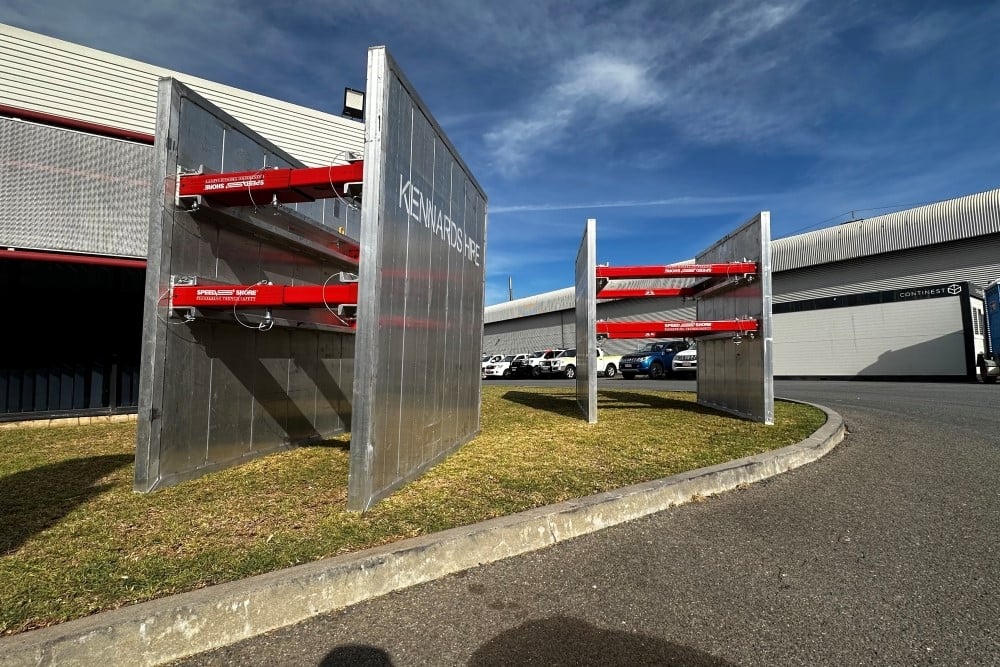Do You Need a Shoring System on Your Site?
Trade Advice
When it comes to below-ground construction, safety and efficiency should be top priorities. One critical element for ensuring excavation safety is shoring. Shoring is a temporary support system that prevents trench or excavation collapse, protecting your workers and keeping projects on track.
We provide easy-to-deploy, manufacturer compliant shoring solutions for a wide range of industries, whether you are working on civil infrastructure, utilities, or drainage. But how can you tell when shoring is required? Here are five key factors to consider before breaking ground:
1. Excavation Depth
Excavation safety regulations in Australia classify any trench deeper than 1.5 metres as high-risk. This means a suitable support system, such as shoring, is mandatory unless benching (steps cut into the vertical surface of an excavation) or battering (an excavated slope, only recommended in very stable conditions) is both feasible and safe. However, on many urban or tight-access worksites, benching simply isn't practical. That's where shoring becomes the most effective, site compliant solution.
Our shoring solutions can be used for a wide range of trench depths and conditions, ensuring that every job is as safe and productive as possible.
2. Soil Conditions
The stability of the ground can make or break trench safety. Loose clays, sandy soil, or areas affected by groundwater are particularly susceptible to collapse – even for relatively shallow excavations.
Although we won't go into a full soil classification here, the rule of thumb is this: the less stable the soil, the more you'll need shoring, regardless of depth.
If you're dealing with tricky ground conditions, our team is here to help. Heavy duty boxes, aluminium shields, or vertical shores, we'll make sure you've got the right setup for the job.
3. Proximity to Critical Assets
If your project involves digging near sensitive infrastructure such as underground services, pump stations, building foundations, or live utilities, the stakes are high. Collapses in these areas can cause considerable damage and delays to your project – not to mention added costs.
Shoring systems such as certified trench boxes or light weight shoring mitigate the risk of collapse and protect nearby assets. For utility contractors or service crews, we also offer lightweight options or modular shoring panels designed specifically for confined spaces.
4. Duration of the Excavation
Even if the soil seems stable at first, the longer an excavation stays open, the more vulnerable it becomes to failure. Factors like soil drying out, becoming waterlogged, or being exposed to vibrations from nearby activity can gradually weaken trench walls. Repeatedly moving machinery near the excavation can also shift the soil, increasing the risk of collapse.
That's why it is crucial to assess even short-term excavations carefully. For any excavation left open for extended periods, even just a few hours, proper shoring is a must. If there are delays or changes to the schedule, reassessing trench safety isn't just a good idea – it is essential to avoid unexpected failures.
5. Environmental Conditions
Weather and environmental factors can have a significant impact on soil stability. Heavy rain, groundwater seepage, or sudden weather changes can cause soil to lose cohesion, making slippage or collapse more likely. On the flip side, extreme heat and dry conditions can lead to soil shrinkage or cracking, especially in clay-based soils.
Environmental vibrations from passing traffic, nearby construction, or equipment use can also destabilize trench walls over time. These risks are even greater on sites near busy roads or active zones.
The good news? Properly installed shoring systems are designed to handle these challenges. They provide solid support to trench walls, counteracting water infiltration, ground movement, and external pressure. By reinforcing the excavation against unpredictable stressors, shoring not only reduces the risk of collapse but also keeps workers safe and ensures compliance with regulations – no matter the site conditions.
Keep Your Site Safe, Productive, and Compliant
Even if your excavation is under 1.5 metres deep, do not underestimate the risks posed by unstable soil or the proximity of critical assets. Taking proactive steps with the right shoring solution can make all the difference.
Our expert team is ready to help you assess your site's unique needs, recommend the safest and most cost-effective approach, and deliver high-quality shoring equipment directly to you. Whether it's a trench box or a custom system, we'll get you geared up and ready to go.
Need help finding the right shoring gear?
Get in touch with your local Kennards Hire branch or call our team today to discuss your project requirements.
We'll make sure you've got this.

